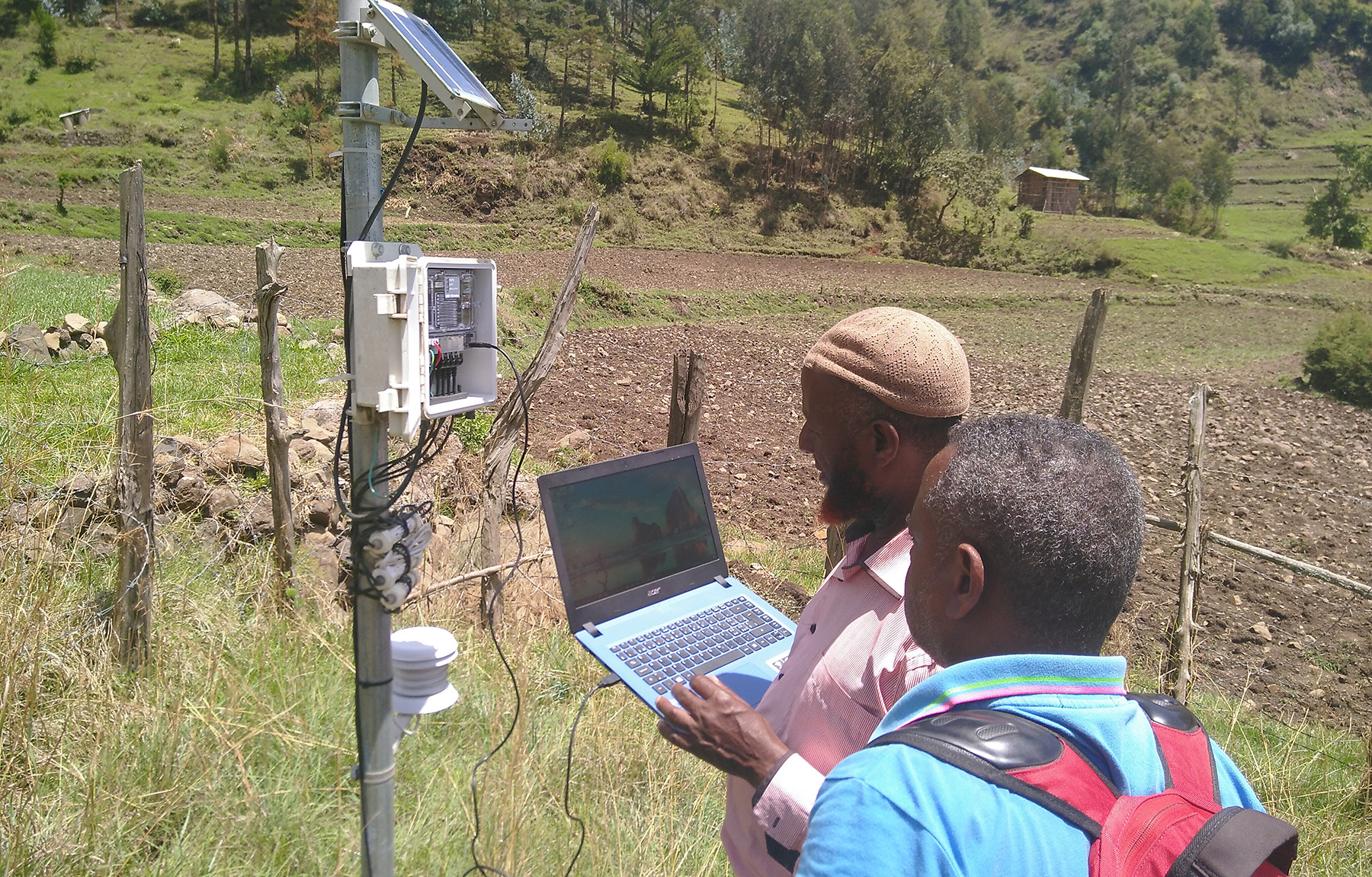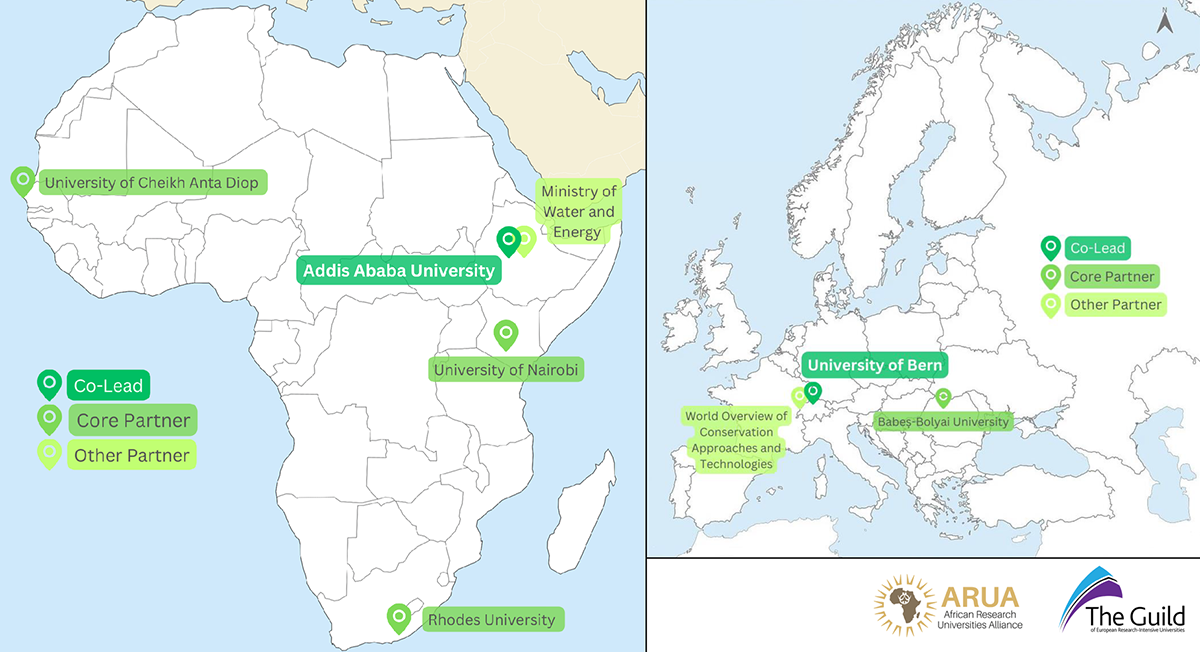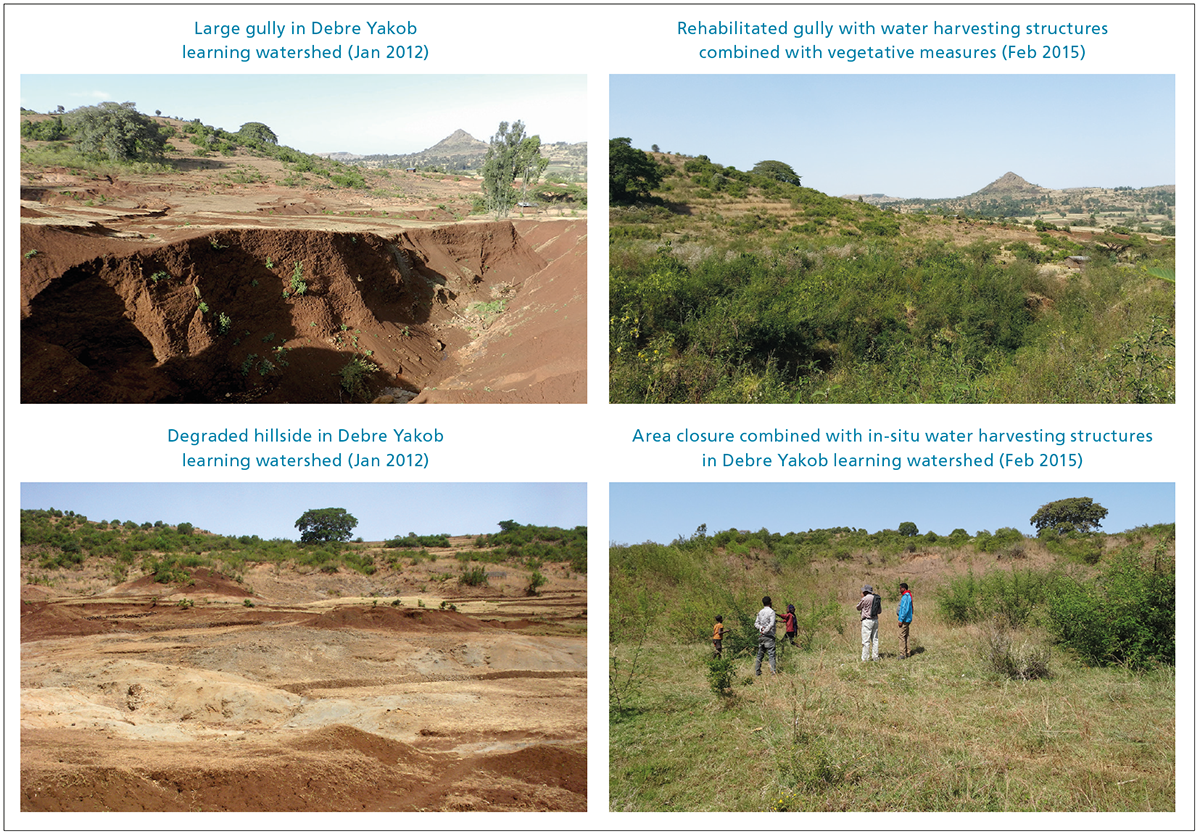In the spotlight
Sustainable water and land resource management for human well-being
Africa and Europe are moving closer together in research. In June 2023, the research alliances ARUA and The Guild launched 20 Clusters of Research Excellence – including one co-led by CDE. Together with our partners – particularly WLRC, affiliated with the University of Addis Ababa, Ethiopia, and the University of Bern – we want to promote sustainable use of water and land resources through this cluster. The work will build on decades of research collaboration with our partners in East Africa.

“We can – and must – address global challenges affecting the African and European continents much more effectively if we develop new, long-term partnerships based on equity.” This is the shared vision of the Alliance of African Research Universities (ARUA) and The Guild, a network of 21 research-intensive universities in Europe, including the University of Bern. In June 2023, they embarked on a joint African and European initiative for excellent research by launching 20 large Clusters of Research Excellence that are set to run for at least ten years.
“Effectively addressing shared global challenges that impact both continents”
CDE co-leads one of the clusters together with the Water and Land Resources Centre (WLRC) in Ethiopia. The cluster, named “Sustainable Water and Land Resource Management for Human Well-Being”, will pursue the overall goal of linking key research partners in sustainable water and land resource management with partners from policy and practice. Together, the resulting teams will address land degradation to foster sustainable development, conflict resolution, and human well-being.
Zerihun Woldu, Professor of Plant Ecology and former Director for Research Affairs at Addis Ababa University, explains: “Both Africa and Europe face numerous challenges, albeit of varying types. In Africa, the youth encounter obstacles hindering their participation in and access to the benefits of scientific advancements, largely due to the paucity of collaborations and knowledge exchange between Southern nations and those in the North.” Zerihun Woldu believes it is imperative for Africa to be integrally involved in global scientific endeavours in order to tackle the UN Sustainable Development Goals, foster higher education, and enhance the efficiency of science funding.
He sees the programme of ARUA and The Guild as a valuable opportunity to foster equitable, lasting partnerships. “They can significantly enhance the capacity of the Africa-Europe Clusters of Research Excellence to effectively address shared global challenges impacting both continents.”

“It takes the right mix of traditional and scientific knowledge”
Emphasizing the importance of the cluster co-led by CDE and WLRC, CDE Director Thomas Breu observes: “Up to 40 per cent of the world’s land is degraded and around half of humanity is directly affected.” Further, notes Thomas Breu, an estimated 50 per cent of the world’s population will live in areas affected by water scarcity by 2030.
According to him, using land and water sustainably and keeping ecosystems and landscapes healthy in the long term is vital to ensuring food security, building resilience to climate change and pandemics, and supporting sustainable livelihoods. “We must address these challenges with the right mix of traditional and scientific knowledge if we want to secure a liveable future,” he emphasizes.
Building on 40 years of partnership
That is precisely the strength of CDE and WLRC, who have worked together on water and land resource management for 40 years. The partnership began with the establishment of a meteorological and hydro-sedimentological monitoring system in the Upper Blue Nile basin. Since then, it has evolved through numerous projects. Among other things, CDE and WLRC have developed a rich scientific knowledge base that informs policy and practice in the field of land and water resource management and governance.
In addition, the partners have always placed great emphasis on initiating and facilitating participatory processes and engaging stakeholders from different sectors and segments of the local population. “Empowerment, awareness raising, and capacity building among local people have been important throughout the process and have inspired many fresh ideas,” underlines Gete Zeleke, Director of WLRC. New practices of land and water management based on traditional knowledge were introduced, and so-called learning watersheds were established. The interventions had the dual objective of diversifying livelihood options while ensuring healthy ecosystems.

Research aimed at concrete use
The new Cluster of Research Excellence will build on these successes. “Africa’s economic system remains largely agrarian. So, our focus on educating young scholars in water and land resource management, doing research on this, and scaling up our experience from the learning watersheds in different parts of Africa will definitely contribute to the future sustainable development of the countries involved,” says Gete Zeleke.
Expansion and new partnerships
Thanks to its multinational scope, the new cluster will enable the partners “to expand our research area beyond Ethiopia – to encompass diverse landscapes, diverse cultures, diverse institutional systems, and diverse professionals at different levels,” says Gete Zeleke. “Most importantly, our approach will have a practical focus rather than remaining theoretical.”
Thomas Breu also considers the programme’s broad scope to be a major asset: “This is a decisive step towards improving people’s well-being and the health of ecosystems in Africa, Europe, and elsewhere.”
Strengthening the ties between equitable research collaborations
All three interviewees agree that it’s necessary to strengthen the ties between equitable European–African science collaborations and to invest in academic careers at all stages. “This collaborative research endeavour will contribute to the recent commitment of the African Union and the European Union to enhance cooperation in science, technology, and innovation and advance the ‘green transition’. It will foster reciprocal sharing of expertise and insights, promote academic mobility, leverage cutting-edge laboratories and resources within universities, facilitate joint publication, and address shared challenges with innovative solutions,” says Zerihun Woldu . “And it is worth mentioning that the new programme will strengthen our South–South collaboration as well,” adds Gete Zeleke.